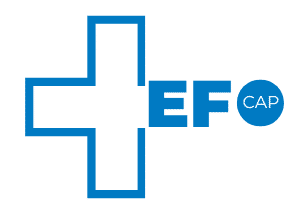Navigating the topic of mental health can feel like traversing a vast, complex wilderness. There’s much to explore, from psychotherapy to medication, to various alternative therapies. But have you ever considered how your diet, specifically your gut health, may influence your mental wellbeing? It’s a burgeoning field of study that’s garnering increasing attention from the scholarly community, according to Google Scholar and PubMed. Evidence is growing around the role of prebiotic fiber and its effects on mental health conditions such as anxiety and depression. These studies suggest that the state of our gut microbiota, the collection of microorganisms living in our digestive tracts, can directly affect our mood and mental state.
The Gut-Brain Axis: A Two-Way Communication
The gut-brain axis refers to the bi-directional communication between the gut and the brain. This communication happens via multiple pathways, including the immune system, the nervous system, and hormonal routes. It’s a complex, dynamic interaction that’s still being researched and understood. However, what’s evident from the latest studies is the integral role gut health plays in our overall health and, more specifically, our mental health.
Also read : Transformative power of emdr therapy in healing journeys
The gut is often referred to as the "second brain" due to its vast network of neurons that communicate with the brain. Moreover, approximately 95% of the body’s serotonin, a neurotransmitter responsible for regulating mood, social behavior, appetite, sleep, and memory, is produced within the gut. Imbalances in gut bacteria have been linked to various mental health issues such as anxiety and depression, indicating a clear connection between gut health and mental wellbeing.
Prebiotics: Feeding the Good Bacteria
Prebiotics are a type of fiber that the human body cannot digest. They serve as food for probiotics, the good bacteria in your gut. You may find prebiotics in foods like whole grains, bananas, onions, garlic, and various greens. Ingesting prebiotics promotes the growth and activity of beneficial bacteria, which in turn benefits gut health.
Topic to read : What Are the Psychological Effects of Long-Term Solitary Activities?
The relationship between prebiotics and mental health comes down to the effects these fibers have on gut bacteria. These effects then influence the gut-brain axis. For instance, a study published on PubMed demonstrated that prebiotic intake could help alleviate anxiety and improve overall mood.
The Impact of Prebiotic Fiber on Mental Health
So, how does prebiotic fiber improve mental health? The answer lies in the intricate relationships between prebiotics, gut microbiota, and the brain. As we’ve already discovered, consuming prebiotics fosters the growth and activity of beneficial gut bacteria. These bacteria produce various substances, like short-chain fatty acids and certain neurotransmitters, that influence brain function and mental health.
Research has shown that these substances can help regulate mood, reduce stress, and even influence cognitive function. For instance, a study published in the Journal of Psychopharmacology found that participants who took a prebiotic supplement for three weeks showed lower levels of anxiety than those who took a placebo.
Incorporating Prebiotics into Your Diet
Incorporating prebiotics into your diet is relatively simple, given they are found in a wide range of foods. Including more fruits, vegetables, whole grains, and fermented foods in your meals can significantly increase your prebiotic intake. Foods particularly high in prebiotics include garlic, onion, leeks, asparagus, bananas, and whole grains like oats and barley.
It’s also possible to take prebiotic supplements if you’re finding it difficult to get enough from your diet alone. However, it’s essential to remember that while prebiotics can support mental health, they are not a standalone treatment for mental health conditions. Always consult with a healthcare provider if you’re struggling with your mental health.
While our understanding of the gut-brain axis and the impact of diet on mental health continues to grow, it’s clear that prebiotic fiber plays an important role in mental wellbeing. By following a diet rich in prebiotics, you’re not just supporting your physical health but also fostering good mental health.
Clinical Trials and Research: An In-Depth Examination of Prebiotic Fiber and Mental Health
Diving deeper into the connection between prebiotic fiber and mental health, numerous clinical trials and research studies have focused on this subject. For example, a clinical trial indexed on Google Scholar found that the intake of prebiotic fiber reduced symptoms of anxiety and depression in the participants. Moreover, another article on PubMed highlighted that prebiotics can decrease stress hormone levels and improve emotional processing, supporting mental health.
The gut microbiota’s composition, influenced by the intake of prebiotic fibers, plays a pivotal role in these results. Prebiotics serve to enhance the gut bacteria population, which in turn produces metabolites like short-chain fatty acids. These fatty acids can cross the blood-brain barrier, modulating the brain’s functions directly. They have anti-inflammatory properties, improve the body’s stress response, and enhance the production of neurotransmitters like serotonin and dopamine, essential for mood regulation.
Depressive symptoms have been found to decrease with higher levels of gut microbiota diversity, a result facilitated by prebiotic intake. This finding was a key point in an article on PubMed, which further emphasized the potential of prebiotics as a therapeutic approach for mental health disorders. These studies collectively show a promising correlation between prebiotic fiber intake and improved mental health outcomes.
Conclusion: The Future of Prebiotic Fiber and Mental Health
In conclusion, the relationship between prebiotic fiber intake and mental health is intricate and multifaceted. Understanding this relationship requires a comprehensive grasp of the gut-brain axis, the role of the gut microbiome, and the impact of diet on both physical and mental health. The connection between the gut and the brain, and the influence of prebiotic diet on the gut microbiota, pave the way for future interventions in managing mental health conditions like anxiety and depression.
Clinical trials and research studies, many of which are available on Google Scholar and PubMed, have begun to reveal the potential benefits of a high prebiotic diet for mental health. These include reduced depressive symptoms, lower stress hormone levels, and improved mood regulation. Despite these promising findings, it’s important to note that prebiotic fiber is not a cure-all. It should be considered part of a holistic approach to mental health care, used in conjunction with other treatments as recommended by healthcare professionals.
Going forward, it’s exciting to think of the potential that lies in further understanding the gut-brain axis. This knowledge could revolutionize the way we approach mental health, providing new innovative strategies for treatment and prevention. As we continue to unravel the complexities of the gut microbiome, it’s clear that prebiotic fiber stands at the forefront of this evolutionary path in mental health care.











